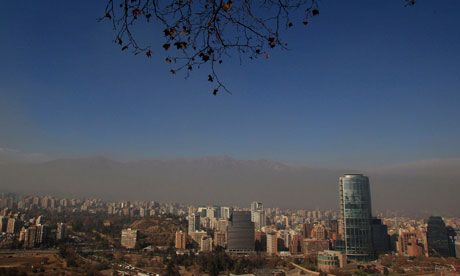
We return from our Argentine adventure with a stack of recommendations – from yago, hymning Leopoldo Marechal's mythical transformation of the Argentinian capital in Adán Buenosayres, to gregory pekerman, hailing Cecilia Szperling's Natural Selection as a "genuinely shocking" portrait of "wild young thrill-seekers – both men and women – as they wander through the subterranean nightlife of Buenos Aires".
Nilpferd saluted a master of fiction in another mode, calling Borges's Selected Non-Fictions "a wonderful collection of essays from the world's most knowledgeable librarian". Dyon suggested that the Danish immigrant Andreas Madsen's Patagonia Vieja "may help understanding the cold solitude of Patagonia", as well as the country's "strange European mix", while Aberdeen Swan wondered if the reason Manuel Puig's Kiss of the Spider Woman isn't better known was that "Puig so clearly did not fit the mould of the macho New Latin American Novelist". But the author who kept coming up again and again was Julio Cortázar, with c. schroder leading the chorus of praise for his "hypertext before hypertexts existed", Hopscotch. Pia.Ayres envies those of us who "haven't read it yet because they have the opportunity to be surprised by this fantastic book", while bc25 suggests it's like jazz, with the story of an expatriate Argentinian in Paris as a standard – "and a good one at that" – while an alternative reading "provides a series of riffs and elaborations on the major themes".
Davidseaman plumped for Cortázar as well, though he cited a collection of short stories containing "at least three genuinely great stories: 'Axlotl', 'Continuity of Parks', and 'Blow-Up'" - neatly bringing us on the discussion of the short story which went on in the comments below. After a blizzard of mentions for short fiction, Nilpferd cautiously suggested that it may have simply been "a favoured mode of expression" for "Borges and his circle", though wondered if the tango might be in some way responsible. MexicanAl noted that the short story is equally important in other parts of Latin America, and speculated that this demand was driven by literary journals such as Sur.
With the Tour heading for South America for the third month in a row, perhaps we can shed a little more light on the place of short fiction in Latin American letters. After edging out Uruguay by nine votes to eight, this month we're hopping across the Argentinian border to Chile. The "país de poetas" gave us the first Latin American Nobel literature laureate in 1945, Gabriela Mistral, and received another nod from the Swedish Academy in 1971 with Pablo Neruda, the swooping lines of whose poetry are matched by the drama of his dizzying personal life.
The novel is also strong in Chile, from Isabel Allende's bestselling magical realism to Roberto Bolaño, who briefly became the hottest writer in New York a couple of years after his death from liver failure in 2003. But where to start with Neruda's gargantuan oeuvre, and what are we to make of Harold Bloom's enthusiasm for José Donoso? Should we be examining the literary effects of Augusto Pinochet's dictatorship, or looking into the origins of creacionismo? And, ahem, what about the short story?
As ever, we're looking for books which illuminate the Chilean experience – poetry of course, as well as fiction short and long, plays and non-fiction – whether already available in English or yet to be translated. We'd also like to hear about writers from elsewhere who've captured something of Chile. All you need to do is visit the boxes below, filling in the country – this month that's Chile – the title, the author, the translator and some indication of why it's great. But don't forget to add your votes for the tour's next destination – your votes still count even if, like me, you haven't got a favourite Chilean writer on your shelves. Who knows, we might even make it out of South America …

